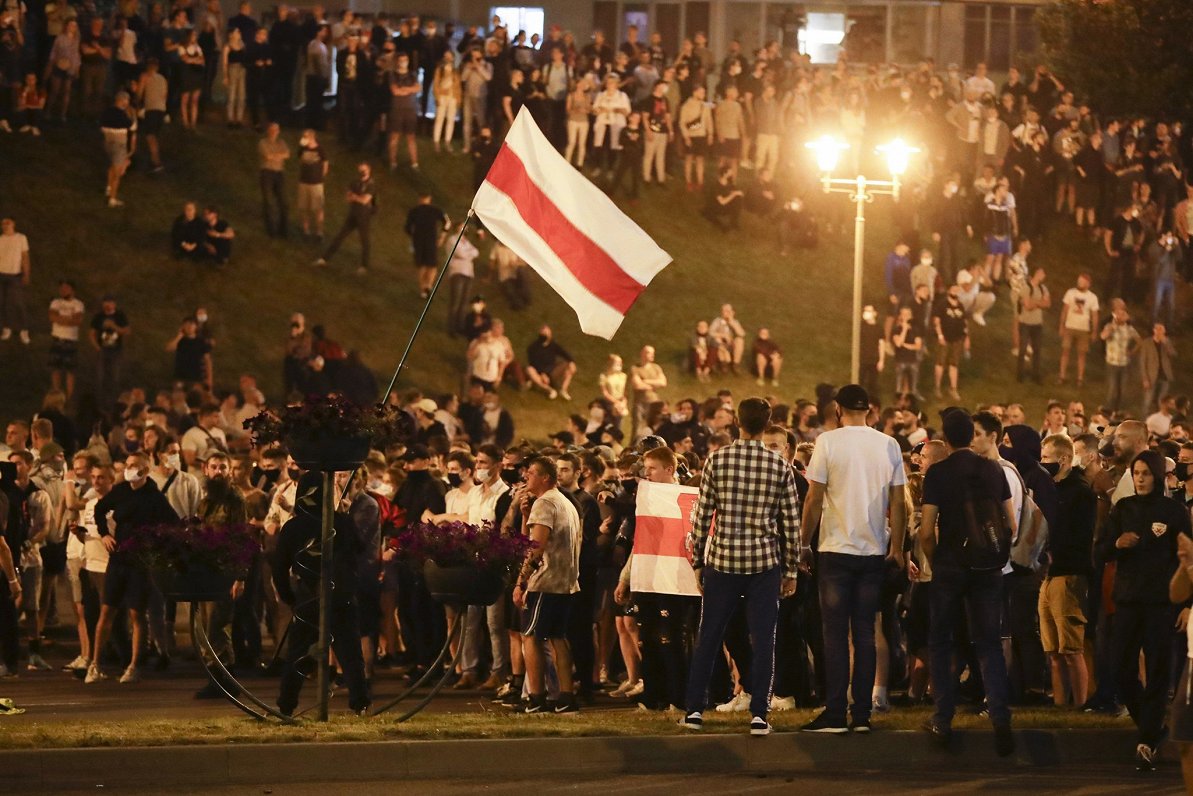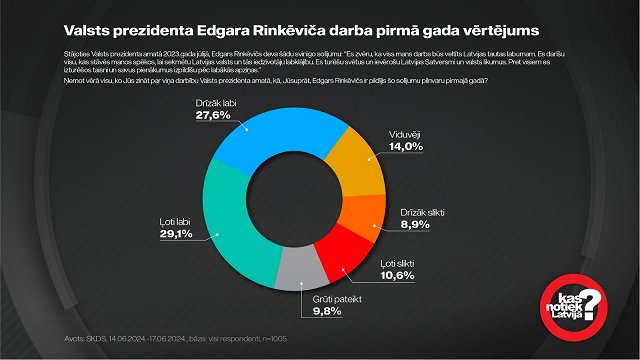"As a neighbor of Belarus, Latvia fully supports the deep desire of the Belarusian people to live in their own independent, free and democratic Belarus governed by the rule of law," Levits said.
"I call on the Organization for Security and Cooperation in Europe and other competent international organizations, in consultation with all stakeholders, to investigate the recent electoral process - the pre-election campaign, election results, and aftermath, to verify and assess the compliance of these elections with the standards of free and democratic elections," Levits said.
However such a task is not likely to be easy given the fact that Lukashenko banned all election observers, including from the OSCE, of which both Latvia and Belarus are members.
Levits also called on the Belarus authorities to release those detained during the elections and to respect human rights and press freedom, despite negligible evidence of such things being high on Lukashenko's priorities duting his 26-year-long rule.
Provisional results of the elections suggested Lukashenko had secured around 80% of the vote, a figure so clearly at odds with the public mood in Belarus as to simply confirm his dictatorial status.
Latvia and Belarus are due to co-host the World Ice Hockey Championships next year.
The Latvian Ministry of Foreign Affairs took a slightly more definitive line on events in Minsk, issuing a statement August 10 saying:
"The Foreign Ministry notes that the presidential elections in Belarus on 9 August did not meet the standards of the Organization for Security and Cooperation in Europe (OSCE). We call on the Belarus government and law enforcement authorities to respect the civil liberties and the right of the people of Belarus to express their political views freely. The use of force against peaceful protesters is unacceptable. The Latvian Ministry of Foreign Affairs calls for the immediate release of the detained protesters."
"Latvia regrets that international observers from the OSCE and the Council of Europe were not able to participate in the election observation. The work of the media in covering the election process was also limited. It is negative that several presidential candidates were denied the opportunity to register for the elections," it added.
"Only by respecting fundamental democratic rights and freedoms is a positive development in EU-Belarus relations possible. Latvia, as a neighbor of Belarus, is interested in such a development," it concluded.
Subsequently, both the President and the Foreign Ministry issued statements in English, too, both of which can be read via the links below.
Statement by the President of Latvia Egils Levits @valstsgriba on elections in Belarus: https://t.co/YanGjVhxVB pic.twitter.com/c6SgD2RT53
— Valsts prezidents (@Rigas_pils) August 10, 2020
.@Latvian_MFA statement on #elections in #Belarus #Belaruselections2020 @LV_Belarus @BelEmbassyLV @BelarusMFA @BelarusMID ➡https://t.co/FqWgaI0jv8
— Latvian MFA (@Latvian_MFA) August 10, 2020
At lunchtime, Prime Minister Krišjānis Kariņš gave is own view on events.
Protests in #Belarus indicate that public opinion is not reflected in the preliminary election results. I support ?? people’s aspirations to live in a sovereign and democratic country with freedom of speech & assembly. I call on the ?? government to refrain from the use of force.
— Krišjānis Kariņš (@krisjaniskarins) August 10, 2020




























